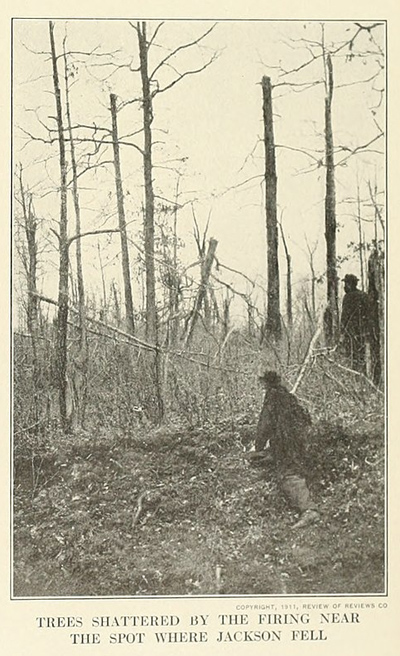"Old Blue Light"
Thomas J. Jackson was born January 21, 1824, in Clarksburg, Virginia (now Clarksburg, West Virginia). He graduated from the US Military Academy in 1846 and earned two brevets serving in the Mexican War. After his service in Mexico, he became a professor at the Virginia Military Academy where he earned the nickname “Old Blue Light.”
Becoming "Stonewall"
When the Civil War began, he was dispatched to Harper’s Ferry where he was in charge of recruiting soldiers to the Confederate Army. After Harper’s Ferry, Jackson’s brigade moved to Manassas with General Johnston’s forces to meet General P.T. Beauregard. It was in the First Battle of Bull Run that Jackson earned the nickname “Stonewall.” “There stands Jackson like a stone wall” were the words of General Bernard Bee as his retreating Alabama forces were reinforced by Jackson. After the Confederate victory at Bull Run, Jackson was promoted to major general. After faulty intelligence resulted in defeat at Kernstown, Jackson won battles at Winchester, Front Royal, Cross Keys, and Port Republic.
Second Bull Run
After helping Lee at Richmond, Jackson and his army detached and headed north to face Union General John Pope’s army. Jackson captured Pope’s supply base at Manassas Junction and held off Pope’s army at the Second Battle of Bull Run before Confederate General James Longstreet launched a decisive attack on Union forces, causing them to retreat.
Untimely Death at Chancellorsville
After Bull Run, Jackson captured Harper’s Ferry and rejoined Lee’s Army of Northern Virginia at Antietam. Despite heavy casualties and an inconclusive result, Jackson was honored and promoted to commander of the 2nd Corps. After defeating Union forces at Fredericksburg, Jackson and his forces routed Union troops at Chancellorsville—his greatest victory. That night, however, Jackson was mortally wounded on accident by his own troops. Jackson had his left arm amputated but died of pneumonia eight days layer on May 10, 1863. Southern sympathizers were devastated. Robert E. Lee said, “He has lost his left arm, but I have lost my right arm.” Stonewall Jackson is buried in Lexington, Virginia.
 |
Location of Stonewall Jackson's Death |